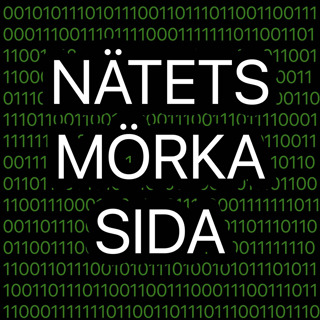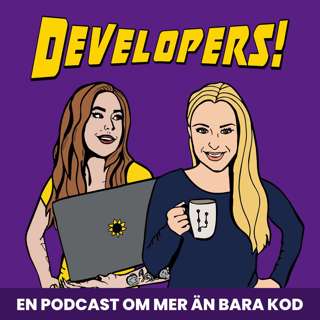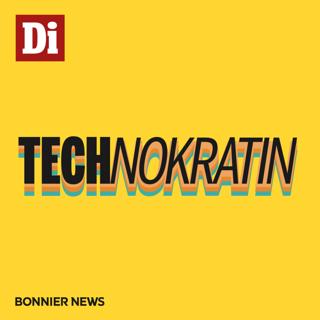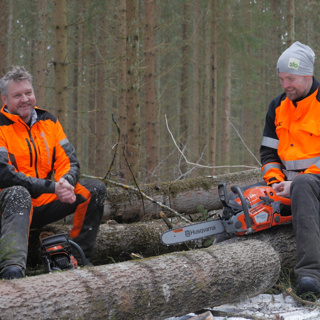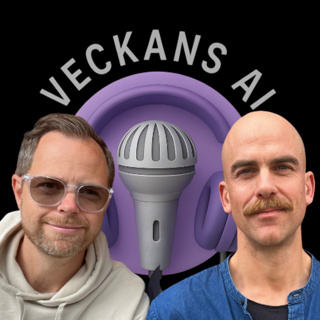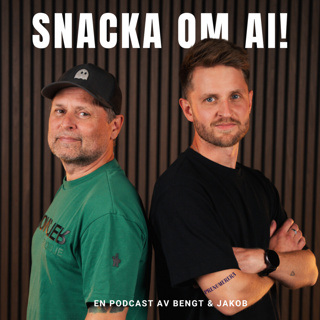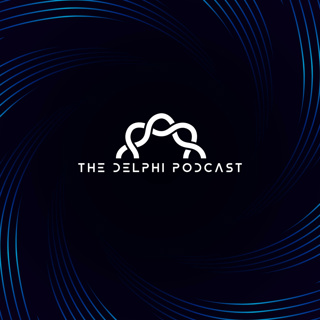
dOrg: Defining DAOs, Comparing the DAO-Model to Traditional LLC Structures, and the Future of DAO Tooling
In this episode, we dive deep with DAO power users Ori Shimony and Nestor Amesty from dOrg, a full-stack Web3 development collective, covering DAO ontology and taxonomy, the trade-offs of DAO structures, the future of DAO tooling, and much more! Show Notes: (00:00:00) – Introduction. (00:00:47) – Guests’ backgrounds. (00:04:47) – What is a DAO? (00:07:52) – The non-hierarchical nature of DAOs. (00:12:04) – Classifying DAOs. (00:14:35) – Deciding to structure dOrg as a DAO / DAOs vs. traditional structures. (00:19:17) – dOrg’s operational structure. (00:23:06) – Token compensation models. (00:26:42) – Traction that dOrg has achieved. (00:28:57) – Having a sense of job security in dOrg. (00:31:26) – Projects that dOrg has worked on. (00:37:24) – Advantages and drawbacks of dOrg’s DAO structure. (00:45:39) – Thoughts on the state of DAO governance and tooling. (00:52:13) – The business model for DAO tooling. (00:56:19) – Can DAO tooling be generalized? (01:00:13) – The most successful DAOs in crypto. (01:03:34) – Upcoming DAO tooling. (01:06:24) – Predictions for future DAOs and governance. (01:11:38) – Closing. Social links: Ori’s Twitter Nestor’s Twitter dOrg Twitter Resources: Delphi Podcast Summaries dOrg’s Website More 📺 Watch Video Interviews 💬 Follow Delphi Podcast on Twitter ✅ Follow Delphi Digital on Twitter 🧠 Access Delphi's Research Disclosures: This podcast is strictly informational and educational and is not investment advice or a solicitation to buy or sell any tokens or securities or to make any financial decisions. Do not trade or invest in any project, tokens, or securities based upon this podcast episode. The host and members at Delphi Digital may personally own tokens or art that are mentioned on the podcast. Our current show features paid sponsorships which may be featured at the start, middle, and/or the end of the episode. These sponsorships are for informational purposes only and are not a solicitation to use any product, service or token. Delphi’s transparency page can be viewed here.
23 Jan 20221h 13min

Tamara Frankel: Deep Dive into the Polkadot and Kusama Ecosystem, the Power of Memes, and DeFi 3.0
In this episode, we sit down with Tamara Frankel, Founding Partner of D1 Ventures, a crypto asset focused investment and advisory firm that is powering the future of the open economy. We dive into how the Polkadot ecosystem stacks up against Cosmos, the next generation of DeFi (DeFi 3.0), the state of DAOs, and much more! Show Notes: (00:00:00) – Introduction. (00:01:11) – Tamara’s background. (00:04:24) – How Polkadot stacks up against Cosmos. (00:10:25) – The next generation of DeFi (DeFi 3.0). (00:14:51) – Overview of Dicc DAO. (00:19:42) – Issues that DAOs face. (00:25:40) – The differences between Polkadot and Kusama. (00:32:03) – Getting involved with the DotSama ecosystem. (00:39:09) – Is it too late to get into crowd loans? (00:42:22) – Primitives D1 Ventures is looking at right now. (00:48:50) – Closing thoughts / DotSama communities. Social links: Tamara’s Twitter D1 Ventures Twitter Dicc Dao Twitter PolkaHaus Telegram Resources: Delphi Podcast Summaries D1 Ventures Website PolkaHaus Website DotLeap Newsletter Dotmarketcap Website More 📺 Watch Video Interviews 💬 Follow Delphi Podcast on Twitter ✅ Follow Delphi Digital on Twitter 🧠 Access Delphi's Research Disclosures: This podcast is strictly informational and educational and is not investment advice or a solicitation to buy or sell any tokens or securities or to make any financial decisions. Do not trade or invest in any project, tokens, or securities based upon this podcast episode. The host and members at Delphi Digital may personally own tokens or art that are mentioned on the podcast. Our current show features paid sponsorships which may be featured at the start, middle, and/or the end of the episode. These sponsorships are for informational purposes only and are not a solicitation to use any product, service or token. Delphi’s transparency page can be viewed here.
21 Jan 202251min

Justin Aversano: Curating On-chain Photography on Quantum Art, the Case for Photography NFTs, and the Twin Flames Story
In this episode, we sit down with Justin Aversano, the creator of Twin Flames and Co-founder of Quantum Art, an on-chain curation platform focused on photographers and their work. We discuss the differences between the crypto art space and the traditional art world, the case for on-chain photography, the collector’s experience on Quantum Art, and much more! Show Notes: (00:00:00) – Introduction. (00:01:14) – Justin’s background. (00:01:59) – The traditional art world vs. the crypto art world. (00:05:34) – The benefits of putting photography on-chain. (00:07:10) – Will new artists go the traditional route or the crypto route? (00:08:41) – The motivation behind Twin Flames. (00:11:43) – The process behind Twin Flames. (00:16:30) – How photographers can get involved with Quantum Art. (00:18:39) – The collector’s experience on Quantum Art. (00:21:34) – Quantum Art’s relationship with artists. (00:24:10) – Plans for scaling curation. (00:25:04) – The most rewarding thing about building Quantum Art. (00:27:14) – What’s next for Quantum Art? (00:31:09) – Physical spaces vs. online spaces. (00:33:24) – Bringing films onto Quantum Art. (00:34:01) – Closing. Social links: Justin’s Twitter Quantum Art Twitter Resources: Delphi Podcast Summaries Quantum Art Website More 📺 Watch Video Interviews 💬 Follow Delphi Podcast on Twitter ✅ Follow Delphi Digital on Twitter 🧠 Access Delphi's Research Disclosures: This podcast is strictly informational and educational and is not investment advice or a solicitation to buy or sell any tokens or securities or to make any financial decisions. Do not trade or invest in any project, tokens, or securities based upon this podcast episode. The host and members at Delphi Digital may personally own tokens or art that are mentioned on the podcast. Our current show features paid sponsorships which may be featured at the start, middle, and/or the end of the episode. These sponsorships are for informational purposes only and are not a solicitation to use any product, service or token. Delphi’s transparency page can be viewed here.
19 Jan 202235min

Ryan “Fwiz” Wyatt: Head of YouTube Gaming on the Future of Blockchain Games, Web3, and the Creator Economy
In this episode, we sit down with Ryan “Fwiz” Wyatt, Head of Gaming at YouTube, who brings years of experience having worked in Major League Gaming, Machinima, and as a competitive gamer himself. Hear from Ryan on the role of Big Tech in the Web3 movement, how the world will transition to blockchain games, Web3’s impact on the creator economy and much more! Show Notes: (00:00:00) – Introduction. (00:00:20) – Ryan’s background. (00:01:47) – Ryan’s work at YouTube. (00:06:07) – Big Tech’s role in the Web3 movement. (00:08:47) – Ryan’s journey into the gaming industry. (00:12:45) – The role of games in modern society. (00:14:42) – Ryan’s involvement in crypto. (00:21:12) – The most potent and interesting aspects of blockchain gaming. (00:27:09) – Elements of Web3 games that will resonate with traditional gamers. (00:30:49) – The effects of spending populations migrating to Web3. (00:33:58) – Traditional gaming corporations and Web3. (00:38:01) – What is missing from blockchain gaming? (00:41:21) – Crypto native games vs. games that abstract crypto elements away. (00:44:01) – DAO governance decision-making in games. (00:46:31) – Web3’s impact on the creator economy. (00:51:55) – Biggest learnings from working at YouTube. (00:55:12) – The biggest threats to blockchain gaming. (00:59:06) – Advice to builders in the space. (01:02:11) – Rapid fire questions. (01:08:12) – Closing. Social links: Ryan’s Twitter Ryan’s Linkedin Resources: Delphi Podcast Summaries More 📺 Watch Video Interviews 💬 Follow Delphi Podcast on Twitter ✅ Follow Delphi Digital on Twitter 🧠 Access Delphi's Research Disclosures: This podcast is strictly informational and educational and is not investment advice or a solicitation to buy or sell any tokens or securities or to make any financial decisions. Do not trade or invest in any project, tokens, or securities based upon this podcast episode. The host and members at Delphi Digital may personally own tokens or art that are mentioned on the podcast. Our current show features paid sponsorships which may be featured at the start, middle, and/or the end of the episode. These sponsorships are for informational purposes only and are not a solicitation to use any product, service or token. Delphi’s transparency page can be viewed here.
17 Jan 20221h 10min

Tarun Chitra: Drinking 3 Redbulls a Day, Gauntlet’s Financial Modelling Platform, and the Future of Governance
The Delphi Podcast Host and GP of Delphi Ventures Tom Shaughnessy sits down with Tarun Chitra, Founder of Gauntlet, a financial modelling platform that uses battle-tested techniques from the algorithmic trading industry to inform on-chain protocol management. The two discuss the intricacies of Gauntlet’s risk models, the future of governance, the state of artificial intelligence, and much more! Show Notes: (00:00:00) – Introduction. (00:01:23) – Tarun’s background / Moving into crypto. (00:16:44) – Overview of Gauntlet. (00:26:06) – Updating risk models. (00:30:16) – Are risk models independent? (00:34:27) – Getting to full automation. (00:41:29) – The future of governance. (00:45:58) – Automated governance modelling. (00:49:09) – Sophisticated AI attack vectors. (00:52:12) – Thoughts on the state of AIs. (00:58:05) – Biggest goal for Gauntlet in the next year. (00:59:19) – Tarun’s favorite hair color. Social links: Tarun’s Twitter Gauntlet Twitter Resources: Delphi Podcast Summaries Gauntlet Website Gauntlet Blog More 📺 Watch Video Interviews 💬 Follow Delphi Podcast on Twitter ✅ Follow Delphi Digital on Twitter 🧠 Access Delphi's Research Disclosures: This podcast is strictly informational and educational and is not investment advice or a solicitation to buy or sell any tokens or securities or to make any financial decisions. Do not trade or invest in any project, tokens, or securities based upon this podcast episode. The host and members at Delphi Digital may personally own tokens or art that are mentioned on the podcast. Our current show features paid sponsorships which may be featured at the start, middle, and/or the end of the episode. These sponsorships are for informational purposes only and are not a solicitation to use any product, service or token. Delphi’s transparency page can be viewed here.
29 Dec 20211h 2min

Sahil Lavingia: Leaving as Pinterest Employee #2, Gumroad Creators Earning $500M, and Why Web2 Companies Can‘t Compete with Web3
The Delphi Podcast Host and GP of Delphi Ventures Tom Shaughnessy sits down with Sahil Lavingia, Founder of Gumroad, a powerful, but simple, e-commerce platform that helps creators monetize digital products and memberships. The two discuss Sahil’s decision to leave Pinterest, Web3’s edge over Web2, decentralizing Gumroad and shifting to a Web3 model, and much more! Show Notes: (00:00:00) – Introduction. (00:01:28) – Sahil’s background. (00:05:24) – The decision to leave Pinterest / Starting Gumroad. (00:13:41) – Working through adversity. (00:21:45) – Advice to crypto founders. (00:36:56) – Decentralizing Gumroad. (00:45:31) – Thoughts on merging Web2 and Web3. (00:48:48) – Social credit and pseudonymity. (00:53:07) – Why Web2 and Web3 are not mutually exclusive. (01:03:27) – Web3’s edge over Web2. (01:09:15) – Pushing change forward on the societal level. (01:13:41) – Sahil and Gumroad’s shift into Web3. (01:20:35) – The most impactful idea in Sahil’s book. (01:23:43) – Closing Social links: Sahil’s Twitter Gumroad Twitter Resources: Delphi Podcast Summaries Gumroad Website Sahil’s Blog Sahil’s Book More 📺 Watch Video Interviews 💬 Follow Delphi Podcast on Twitter ✅ Follow Delphi Digital on Twitter 🧠 Access Delphi's Research Disclosures: This podcast is strictly informational and educational and is not investment advice or a solicitation to buy or sell any tokens or securities or to make any financial decisions. Do not trade or invest in any project, tokens, or securities based upon this podcast episode. The host and members at Delphi Digital may personally own tokens or art that are mentioned on the podcast. Our current show features paid sponsorships which may be featured at the start, middle, and/or the end of the episode. These sponsorships are for informational purposes only and are not a solicitation to use any product, service or token. Delphi’s transparency page can be viewed here.
22 Dec 20211h 25min

ALL.ART: Solving Metadata, Intellectual Property, and Infrastructure for NFTs, $AART Token IDO, and the Case for Virtual Reality
The Delphi Podcast Guest Host and NFT/Gaming Analyst Jeremy Parris sits down with Vitomir Jevremovic and Jovan Tisma, Co-founders of ALL.ART, foundational NFT infrastructure built on the Solana blockchain. They discuss metadata, infrastructure, and intellectual property issues around NFTs, the $AART token IDO and NFT drop, VR ALL.ART and much more! Show Notes: (00:00:00) – Introduction. (00:01:30) – Guests’ backgrounds. (00:03:08) – What is ALL.ART? (00:10:31) – What is lacking in current NFT metadata & infrastructure. (00:21:12) – The intellectual property and licensing problem with NFTs. (00:28:59) – Overview of Solsea. (00:39:51) – Details of the ALL.ART IDO. (00:48:03) – The ALL.ART NFT collection. (00:50:17) – The case for virtual reality. (00:56:16) – $AART token. (01:03:35) – Advantages of having Solsea as a working product. (01:06:27) – Closing thoughts. Social links: Jovan’s Twitter Vito’s Twitter ALL.ART Twitter Solsea Twitter Resources: Delphi Podcast Summaries ALL.ART Website ALL.ART IDO Solsea Website ALL.ART Unity Wallet VR ALL.ART More 📺 Watch Video Interviews 💬 Follow Delphi Podcast on Twitter ✅ Follow Delphi Digital on Twitter 🧠 Access Delphi's Research Disclosures: This podcast is strictly informational and educational and is not investment advice or a solicitation to buy or sell any tokens or securities or to make any financial decisions. Do not trade or invest in any project, tokens, or securities based upon this podcast episode. The host and members at Delphi Digital may personally own tokens or art that are mentioned on the podcast. Our current show features paid sponsorships which may be featured at the start, middle, and/or the end of the episode. These sponsorships are for informational purposes only and are not a solicitation to use any product, service or token. Delphi’s transparency page can be viewed here.
20 Dec 20211h 10min

Superfluid: Streaming Salaries by the Second, Building Token Standards for Programmable Cash Flows, and Super App
The Delphi Podcast Host and GP of Delphi Ventures Tom Shaughnessy sits down with Francesco George Renzi, CEO and Co-founder of Superfluid, a protocol building programmable money streams. The two discuss how streaming solves payment problems today, the potential of streaming as a DeFi primitive, using future cash flow for on-chain credit scoring, and much more. Show Notes: (00:00:00) – Introduction. (00:01:17) – Francesco’s background. (00:02:40) – The inspiration for starting Superfluid. (00:04:31) – Problems with payments today / Why streaming payments are better. (00:07:57) – Potential pushback from Web2. (00:10:22) – Superfluid usage in DAOs. (00:12:47) – Getting started with Superfluid. (00:17:27) – Upgrading/downgrading tokens. (00:19:40) – How gas cost savings are achieved. (00:23:11) – Uses for streaming beyond payments. (00:29:58) – Future cash flow and on-chain credit scoring. (00:34:36) – What are Super Apps? (00:38:02) – Superfluid and L2s. (00:41:34) – Biggest challenge building Superfluid / Advice to founders. (00:44:45) – Closing thoughts. Social links: Francesco’s Twitter Superfluid Twitter Superfluid Discord Resources: Delphi Podcast Summaries Superfluid Website Superfluid App Superfluid Docs Ricochet Exchange Website More 📺 Watch Video Interviews 💬 Follow Delphi Podcast on Twitter ✅ Follow Delphi Digital on Twitter 🧠 Access Delphi's Research Disclosures: This podcast is strictly informational and educational and is not investment advice or a solicitation to buy or sell any tokens or securities or to make any financial decisions. Do not trade or invest in any project, tokens, or securities based upon this podcast episode. The host and members at Delphi Digital may personally own tokens or art that are mentioned on the podcast. Our current show features paid sponsorships which may be featured at the start, middle, and/or the end of the episode. These sponsorships are for informational purposes only and are not a solicitation to use any product, service or token. Delphi’s transparency page can be viewed here.
17 Dec 202145min








